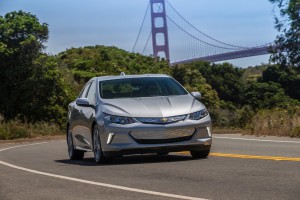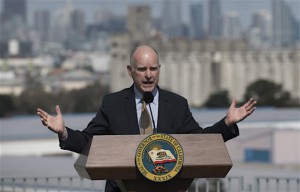
The Trump administration is proposing revoking California's ability to make it's own emissions and fuel economy rules.
While the industry is focused now on issues such as trade, manufacturing capacity and employment, the fight over fuel economy and emissions hasn’t gone away and could roar back to life any time.
The Trump administration proposed rolling back the fuel-economy rules imposed in the waning days of Obama administration. It also has proposed eliminating California’s hold on the auto industry.
California, powered by an overwhelming political victory by Democrats opposed to Trump in last month’s midterm elections and bolstered by new reports both from the Trump administration’s Environment Protection Agency and the United Nations Independent Panel on Climate Change, have vowed a long and expensive court fight to protect the Obama standards and its authority.
Caught between warring visions of the automotive future, automakers are encouraging both sides to compromise, though the prospects seem increasingly remote.
(California pushes ahead with promotion of zero-emission vehicles. Click Here for the story.)
The Trump administration has emphasized that rolling back the standards would save money and help insure that new vehicles are affordable, which would increase sales of cleaner and safer vehicles.
Environmentalist, however, said this week that the administration was mis-representing the work of outside analysts that it cited in support of the rollback.
“The 2018 analysis has fundamental flaws and inconsistencies, and is at odds with basic economic theory and empirical studies,” the 11 researchers from the University of Southern California, MIT, and other institutions said in an analysis published in the journal Science.
Correcting just one error – what is expected to happen with vehicle miles traveled – would eliminate the economic gains predicted by the Trump administration — from $90.7 billion to zero, according to the National Resources Defense Council.
The new paper documents a number of other errors and concludes that automakers face modest compliance costs.
(Click Here for more about California thumbing its nose at Trump on Clean Air Standard.)
“These independent researchers are demonstrating what we’ve long suspected: the Trump administration used every trick it could to try and justify its plan to halt progress on tailpipe pollution,” said Luke Tonachel, director for clean vehicles and clean fuels at the Natural Resources Defense Council. “The fact is that the rollback makes no sense. We get more confirmation of that fact every day.”
In August, NHTSA and the EPA rolled out proposed CAFE standards for model years 2022 through 2026 and amending its 2021 model year CAFE standards because they are no longer “maximum feasible standards.”
The EPA also is proposing to amend its carbon dioxide emissions standards for model years 2021 through 2025 because they are “no longer appropriate and reasonable in addition to establishing new standards for model year 2026. The preferred alternative is to retain the model year 2020 standards
“The industry has achieved tremendous gains in fuel economy during the past decade, and these increases will continue at least through 2020.”
Along with these gains in fuel economy, the EPA noted as it rolled out the proposed changes, there have also been “tremendous increases” in vehicle prices. “As new vehicles become increasingly unaffordable — with the average new vehicle transaction price recently exceeding $36,000 — up by more than $3,000 since 2014 alone,” the EPA noted.
(To see more about why automakers are caught “in limbo” with emissions rules, Click Here.)
“In fact, a recent independent study indicated that the average new car price is unaffordable to median-income families in every metropolitan region in the United States except one: Washington D.C.,” the EPA said.


